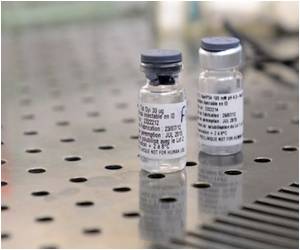More than 70% of bladder tumours display somatic mutations in the TERT gene (telomerase reverse transcriptase), discover researchers from the Spanish National Cancer Research Centre (CNIO).

The conclusions come from an exhaustive genetic and molecular study of more than 450 patients diagnosed with bladder cancer. Among the cases explored are both indolent tumours and more aggressive tumours and, therefore, those most likely to develop localised or spreading metastasis in the organism. "When we analysed the frequency of TERT mutations in this group of patients, we observed that there was no correlation between the presence of mutations and the aggressiveness of the tumour or the survival or the patients", says Real. The authors’ description in the article explains that: "The fact that these mutations are present in any phase of the urothelial tumoural process suggests that they occur in an early phase during carcinogenesis".
The product of the TERT gene is a protein, the reverse transcriptase of the telomerase complex, which increases the length of telomeres, protective structures for genetic material located at the ends of chromosomes and associated with cellular ageing.
"How TERT mutations affect the length of the telomeres and encourage carcinogenesis still needs to be discovered", says Real, adding that: "We believe that they could increase the gene expression, but additional studies are necessary".
The authors think that the clinical implications of their study could be of great relevance, both from a diagnostic point of view and in the follow-up treatment of these patients.
From the diagnostic and treatment-of-patients points of view, the authors propose TERT as a new biomarker for bladder cancer: "We are able to detect gene mutations in urine samples from patients, in such a way that the analysis of these mutations, combined with other markers, could be promising for the detection of the illness".
Source-Eurekalert
 MEDINDIA
MEDINDIA



 Email
Email










